
Lothar Berg (born 28 July 1930 in Stettin; died 27 July 2015 in Rostock) was a German mathematician and university teacher.

Lothar Berg (born 28 July 1930 in Stettin; died 27 July 2015 in Rostock) was a German mathematician and university teacher.
Lothar Berg graduated from high school in Neustrelitz in 1949 and then studied mathematics and physics at the University of Rostock. In 1953, he began a two-year postgraduate course at the University of Rostock. In 1955, he received his doctorate under Ludwig Holzer and Hans Schubert ("Allgemeine Kriterien zur Massbestimmung Linearer Punktmengen", English: General criteria for the measurement of linear point sets). [1] Lothar Berg then went to the Technical University of Electrical Engineering in Ilmenau as a senior assistant (from 1958 as university lecturer).
![Wolfgang Engel [de] (left) with Lothar Berg (right), Rostock 1967 Engel berg.jpg](http://upload.wikimedia.org/wikipedia/commons/thumb/d/d6/Engel_berg.jpg/220px-Engel_berg.jpg)
From 1959 to 1965 Berg was a professor of mathematics at the University of Halle. From 1965 until his retirement in 1996 he was professor of analysis at the University of Rostock. He accompanied a large number of young mathematicians in their research work. His students included the later university teachers Karl-Heinz Kutschke, Manfred Taschen, Manfred Krüppel and Dieter Schott. [1]
Lothar Berg was a board member of the Mathematische Gesellschaft der Deutschen Demokratischen Republik (English: Mathematical Society of the German Democratic Republic) from 1981 to 1990 and a member of the Leopoldina from 1970 until his death.
In 1973, he received the University Medal of the University of Jyväskylä, Finland, and the Second University Prize by the University of Rostock in 1978 [2] as well as the Ehrenmedaille of the Mathematische Gesellschaft der Deutschen Demokratischen Republik, Berlin, in 1990.[ citation needed ] In 2005, he received the Golden DMV Plaquette by the German Mathematical Society. [2]
Lothar Berg has also been listed as a noteworthy mathematics educator by Marquis Who's Who. [2]
Since 27 May 1952, [3] he was married to a co-translator of various Russian math books into German, Christa Berg née Jahncke. [3] They had two children.

Lothar Collatz was a German mathematician, born in Arnsberg, Westphalia.

The National Prize of the German Democratic Republic (East Germany) (German: Nationalpreis der Deutschen Demokratischen Republik) was an award of the German Democratic Republic (GDR) given out in three different classes for scientific, artistic, and other meritorious achievement. With scientific achievements, it was often given to entire research groups rather than individual scientists.

Siegfried Johannes Gottwald was a German mathematician, logician and historian of science.
Abhandlungen aus dem Mathematischen Seminar der Universität Hamburg is a peer-reviewed mathematics journal published by Springer Science+Business Media. It publishes articles on pure mathematics and is scientifically coordinated by the Mathematisches Seminar, an informal cooperation of mathematicians at the Universität Hamburg; its Managing Editors are Professors Vicente Córtes and Tobias Dyckerhoff. The journal is indexed by Mathematical Reviews and Zentralblatt MATH.
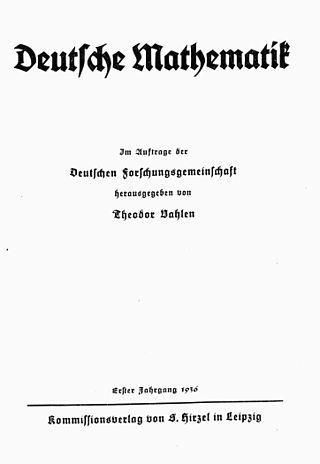
Deutsche Mathematik was a mathematics journal founded in 1936 by Ludwig Bieberbach and Theodor Vahlen. Vahlen was publisher on behalf of the German Research Foundation (DFG), and Bieberbach was chief editor. Other editors were Fritz Kubach, Erich Schönhardt, Werner Weber, Ernst August Weiß, Karl Dörge, Wilhelm Süss, Günther Schulz (de), Erhard Tornier, Georg Feigl, Gerhard Kowalewski, Maximilian Krafft, Willi Rinow, Max Zacharias, and Oswald Teichmüller. In February 1936, the journal was declared the official organ of the German Student Union (DSt) by its Reichsführer, and all local DSt mathematics departments were requested to subscribe and actively contribute. In the 1940s, issues appeared increasingly delayed and bunched; the journal ended with a triple issue in June 1944.
Wilhelm Ahrens was a German mathematician and writer on recreational mathematics.
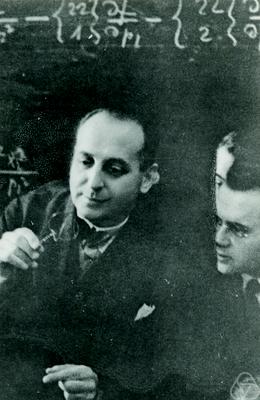
Georg Feigl was a German mathematician.

Vyacheslav Vassilievich Stepanov was a mathematician, specializing in analysis. He was from the Soviet Union.

Gradshteyn and Ryzhik (GR) is the informal name of a comprehensive table of integrals originally compiled by the Russian mathematicians I. S. Gradshteyn and I. M. Ryzhik. Its full title today is Table of Integrals, Series, and Products.
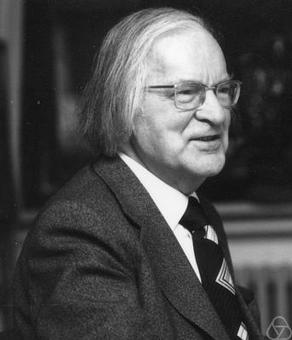
Hans Rohrbach was a German mathematician. He worked both as an algebraist and a number theorist and later worked as cryptanalyst at Pers Z S, the German Foreign Office cipher bureau, during World War II. He was latterly known as the person who broke the American diplomatic O-2 cypher, a variant of the M-138-A strip cipher during 1943. Rohrbach wrote a report on the breaking of the strip cypher when he was captured by TICOM, the allied effort to roundup and seize captured German intelligence people and material.

Karl Walter Schröter was a German mathematician and logician. Later on, after the war, he made important contributions concerning semantic consequences and provability logic. He worked as a mathematical theoretician and cryptanalyst for the civilian Pers Z S, the cipher bureau of the Foreign Office, from the spring of 1941 to the end of World War II.
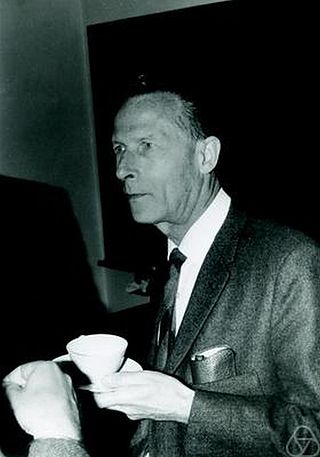
Rudolf Paul Joachim Kochendörffer was a German mathematician and professor of mathematics in the University of Rostock specialising in algebra, group theory and theory of finite groups and their representation. During World War II, Kochendörffer worked as a mathematical cryptanalyst in the mathematical referat of Inspectorate 7/IV, that would later become part of Referat I of Group IV of the General der Nachrichtenaufklärung, the signals intelligence agency of the Wehrmacht and was known as a cryptographic tester of the Enigma cipher machine. Kochendörffer was a Member of the Scientific Advisory Council for Mathematics at the State Secretariat for the Higher and Specialist Schools of the GDR, a staff member of Mathematical Reviews and collaborated with the Zentralblatt MATH
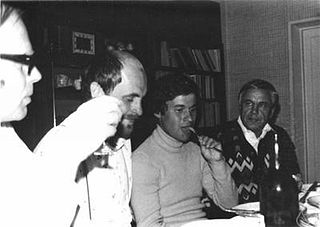
Helmut V. Koch is a German mathematician specializing in number theory.

Gudrun Kalmbach is a German mathematician and educator known for her contributions in the field of quantum logic and for the educational programmes she developed.
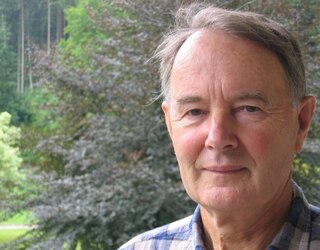
Winfried Scharlau was a German mathematician.

Claus Peter Ortlieb was a German mathematician (PhD), critic of work, critic of political economy, and a critic of contemporary science, especially regarding its use of mathematics. He was an editor for the journal EXIT!.

Eberhard Hermann Erich Zeidler was a German mathematician, who worked primarily in the field of non-linear functional analysis.
Victor Hugo Moll is a Chilean American mathematician specializing in calculus.
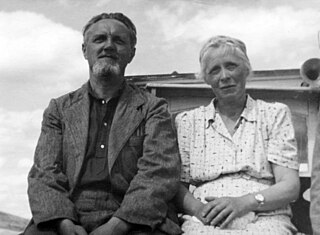
Wilhelm Rudolf Alfred Klose was a German applied mathematician and astronomer.
Walter Purkert is a German mathematician and historian of mathematics.